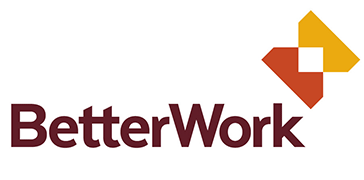Publications
March 2014
-

Publication
Women’s Entrepreneurship Development (WED) in South Africa: The Abafazi Incubator Project
21 March 2014
The WED programme focuses on establishing an enabling environment for women’s entrepreneurship initiatives through increasing their access to service providers while improving income-generation, productivity and competitiveness. This is achieved through building the capacity of governments, employers’ organizations, trade unions, and civil society organizations to support women entrepreneurs at growth stages.
-
Publication
Engaging private enterprises in promoting Social Protection Floors: Public-Private Partnership
20 March 2014
In 2014 some 73 per cent of the world population did not enjoy adequate social protection. Some 39 per cent have no access to health care at all. One in two children lives in poverty. Only 12 per cent of the unemployed receive unemployment benefit, and 50 per cent of the elderly have pensions. The majority of the population excluded from social protection are the poor and those working in the informal economy.
-

Publication
The World Organization of the Scout Movement (WOSM) and the ILO’s International Programme on the Elimination of Child Labour join forces to combat child labour
20 March 2014
The partnership connects the 40 million-strong Scout Movement with the ILO’s International Programme on the Elimination of Child Labour (IPEC), in particular with its Supporting Children’s Rights through Education, the Arts and the Media programme (SCREAM). SCREAM is an education and social mobilization initiative that empowers children and youth by equipping them with knowledge and skills to participate actively in the campaign against child labour and for social change.
-

Publication
Job evaluation and design of an occupational certification process in the construction industry
20 March 2014
In coordination with employers’ and workers’ representatives, and funded by the Fondo Social de la Construcción, the ILO Inter-American Centre for Knowledge Development in Vocational Training (ILO-CINTERFOR) commenced an initiative entitled “Job evaluation and design of an occupational certification process in the construction industry”.
-

Publication
Strategic HIV/AIDS Response in Enterprises
20 March 2014
The ILO’s Strategic HIV/AIDS Response in Enterprises (SHARE) taps into the resources of the public and private sectors for the benefit of workers, their families, and enterprises – not to mention national economies. SHARE’s principal objectives are to help overcome HIV employment-related discrimination and to prevent HIV by reducing risky behaviour among workers in selected economic sectors, especially those that might be more vulnerable to HIV due to working and related living conditions.
-

Publication
A Public-Private Partnership to economically empower HIV-vulnerable populations along transport corridors in Zimbabwe
20 March 2014
Zimbabwe is among the countries in sub-Saharan Africa worst affected by the HIV and AIDS epidemic. A partnership has been established between the ILO, the Small Enterprise Development Corporation of Zimbabwe (SEDCO), multiple private sector partners such as the Post Office Savings Bank, the Ministry of Labour and Social Welfare of Zimbabwe, and the Swedish International Development Cooperation Agency (Sida), to address the challenge.
-

Publication
Sustaining Competitive and Responsible Enterprise
20 March 2014
Sustaining Competitive and Responsible Enterprises (SCORE) is a practical training and in-factory counseling programme that improves productivity and working conditions in SMEs. The product demonstrates best international practice in the manufacturing and service sectors and helps SMEs to participate in global supply chains.
-

Publication
Masters Courses for Social Policy Financing and Social Policy Design, Public Policy and Human Development Master Programme specializations at Maastricht University
20 March 2014
Depending on the state of economic development, individual countries redistribute between 5 and 30 per cent of GDP through national social protection schemes (social assistance schemes, social insurance schemes, health benefits, pension and short-term cash benefits). Redistributive machines of such an order of magnitude need to be designed, adjusted, reformed, monitored and managed by highly qualified social protection specialists and managers.
-

Publication
Multi-regional Project on Strengthening the World of Work Response on HIV and AIDS
20 March 2014
The ILO is the lead UN agency for HIV and AIDS policies and programmes in the world of work and private sector mobilization. The ILO programme on HIV and AIDS and the World of Work plays a key role in the global HIV responses through workplaces. This project, the second phase of a partnership between OFID and the ILO, contributed to the reduction of HIV incidence among individuals through effective world of work responses in eleven countries.
-

Publication
Improving work opportunities for young people in the Mano River Union (Youth-to-Youth fund)
20 March 2014
Aimed at youth-led organizations in Guinea, the YEN, in collaboration with UNIDO, FCP, and the WB, launched a competitive grant scheme. The call was for innovative small-scale youth employment projects and supported young people in the transition from being passive recipients to active participants in the creation of employment and the effects this can have on the promotion of peace. Successful applicants were awarded a grant of between USD 5,000 and 20,000 in tandem with the provision of capacity building assistance in order to support project implementation.
-

Publication
Governing Labour Standards in the Chinese Electronics Manufacturing Industry: Labour Market Institutions and Governance of Global Production Chains
20 March 2014
Transition from a planned economy to a market economy has brought unprecedented success in rapid industrialization and poverty reduction in China. It has also brought the enormous challenges of restructuring China’s labour markets, developing new legal norms governing new market-based employment relations and building new institutions of labour relations. In the 1990s, when the old system was under restructuring, while new shared norms were yet to emerge and prevail there was a regulatory and institutional vacuum. This led to widespread problems such as sweatshop working conditions, weak law enforcement and a rising number of disputes.
-

Publication
Microfinance Support Programme, Viet Nam
20 March 2014
Microfinance has played an important role in national, provincial and local efforts to reduce poverty over this period with over 300,000 regular clients to microfinance institutions. However, access to relevant and sustainable microfinance services (credit, savings, insurance, money transfers) remains a challenge. The microfinance industry in Viet Nam still needs investments in all aspects for further development at all levels.
-

© Z.Hossain Chowdhury / NurPhoto 2024
Publication
Improving Working Conditions and Promoting Competitiveness in Global Supply Chains
20 March 2014
The Better Work Programme is an innovative partnership between the ILO and the International Finance Corporation, and as at December 2013 included some 22 Buyer Partners and 827 factories employing 966,762 workers. The programme can play a significant role in helping international buyers uphold their commitment to comply with international core labour standards and national labour laws, and to continuously improve their global supply chains. The emphasis is on capacity building and social dialogue and on the identification of practical solutions that bring sustainable and positive change to the industry. Driving sector-wide, sustainable improvements in adherence to national labour laws and core labour standards contributes to improving the lives of millions of workers and their families, and importantly also enhances business competitiveness in major garment producing countries.
-

Publication
Entrepreneurship Education – Know About Business in Jordan
20 March 2014
The ILO’s Know About Business (KAB) training programme has contributed toward the creation of an enterprise culture in many countries and societies. It promotes awareness among young people of the opportunities and challenges of entrepreneurship and self-employment, and of their role in shaping their future and that of their country's economic and social development.
-

Publication
Employment Promotion Project following the Earthquake in Mianzhu, Sichuan Province, China
20 March 2014
In May 2008 an earthquake registering 8.0 on the Richter scale struck the Sichuan province in China. Official statistics state that over 45 million people were affected, including 69,163 deaths. Approximately 6.5 million homes were destroyed and many had to relocate. Around 30 million people lost the majority of their productive assets and almost 2 million people lost their livelihoods.
-

Publication
Empowering Union Participation for Strengthening the Role of the Viet Nam General Confederation of Labour in Better Work Viet Nam
20 March 2014
The partnership is supporting workers’ organizations within Better Work – a multi-country innovative partnership between the ILO and the International Finance Corporation aiming at improving compliance with national labour laws and core labour standards while enhancing business competitiveness. This project supports Better Work Viet Nam in particular.
-

Publication
Building Capacity for Social Compliance of Investments in Agriculture in Africa
20 March 2014
The Africa Agriculture and Trade Investment Fund (AATIF), emerged through a private-public partnership initiated by KfW on behalf of the German Federal Ministry for Economic Cooperation and Development and Deutsche Bank. It aims to realize the potential of Africa’s agriculture for the benefit of the poor. AATIF pursues a private sector approach addressing the specific needs of the agricultural sector in a market-oriented way while its social and environmental management system and strong governance structure with an independent compliance advisor safeguard a positive development impact. Especially regarding social effects, AATIF felt that more has to be done than defining standards in order to mitigate social and environmental risks. Building new partnerships, especially signing the collaboration agreement with the ILO as the Fund’s Compliance Advisor, has helped AATIF to establish a credible framework for impact investments.
-

Publication
The Youth Entrepreneurship Facility’s Youth-to-Youth Fund in East Africa: Public-Private Partnership
20 March 2014
The Youth Entrepreneurship Facility (YEF) enables African youth to turn their ideas into business opportunities aimed at increasing their income and the creation of decent work for themselves and others. It is a public-private partnership (PPP) initiative put in place by the Africa Commission, sponsored by BASF, and implemented by the Youth Employment Network (YEN) of the ILO. The Youth-to-Youth Fund aims to assist youth-led organizations in designing and implementing projects for promoting and developing youth entrepreneurship through a transparent and competitive grant scheme. YEN has launched a call for proposals for nonprofit youth-led organizations. Winners receive funding and capacity-building support. They in turn train local youth and help them to set-up micro-enterprises.
-

Publication
Work4Youth: The MasterCard Foundation’s Partnership with the ILO: Public-Private Partnership
20 March 2014
A public-private partnership (PPP) between the ILO and The MasterCard Foundation has been established to improve data and knowledge on youth employment that will, in turn, help the ILO to better guide constituents to shape effective policies and programmes on youth employment in 28 countries worldwide. The way the “Work4Youth (W4Y)” project does this, is through better knowledge on the challenges young people face in their labour market transitions at national, regional and global levels, as well as through the identification and dissemination of good practices in policies and programmes. The project supports participating countries in bridging their knowledge gaps on the particularities of youth in the labour market, including in areas such as financial inclusion, wage and earnings and other conditions of work, and supports them in the development or review of youth employment policies and programmes that efficiently ease the transition of young women and men to decent work.
-

Publication
The PREJAL Project: Promoting Youth Employment in Latin America: Public-Private Partnership
20 March 2014
In 2005 the ILO Regional Office for Latin America and the Caribbean – assisted by the ILO Office in Madrid – started the regional PREJAL project: Promoting Youth Employment in Latin America, the first public-private partnership (PPP) in Latin America focusing on youth employment. This project aimed to position the youth employment issue at regional and national levels by raising awareness in all layers of the societies of the importance of access to full and productive jobs for young people; promote and support the elaboration of policies and programmes on youth employment through technical assistance; develop innovative experiences of capacity building and inclusion for young women and men, with the ultimate goal of joining enterprises; improve the employability and access to work experience for disadvantaged young people in the finance, energy, security, human resources and sports sectors; conduct a youth employment communication and dissemination campaign, reinforced by a PREJAL virtual platform to exchange knowledge and share the results of the project.